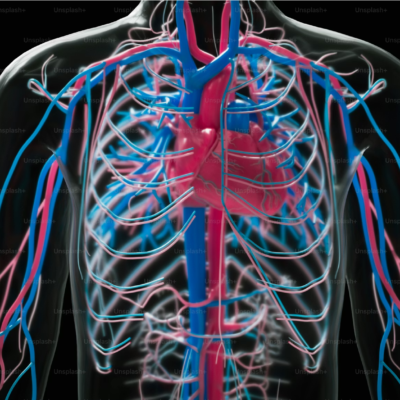Human Rights Violations at Guantanamo Bay Highlight American Hypocrisy
As an Imam leads prayer and walks through the U.S.-occupied Cuban prison, his footsteps walk over shattered teeth and water-filled rags. While he notices the thick mesh cages holding humans like animals, the guards mock him for his religion, and for treating these animals like humans. Monitored and traumatized, this Imam walks away from a place riddled with human rights abuses enforced by the land of the just and free: Guantanamo Bay. Guantanamo Bay is full of deplorable actions against humans, actions that the U.S. must no longer sponsor if it is truly concerned about justice and equality.
Guantanamo Bay was created by the United States in the wake of 9/11 as a holding place for dangerous prisoners of war, where they would be interrogated with enhanced techniques, prosecuted for war crimes, and trapped behind walls for the sake of justice. Little did the public know at the time that this supposed step towards justice was truly a horror-filled jail filled with senseless and unproductive torture, defying even the Geneva Convention. Not even located in the borders of our country, this Cuban bay hosts violence materialized in ways not only illegal but against the exact justice that the United States preaches. Today, 22 years later, despite an executive order and countless human rights violations agreed upon globally, the United States continues to support the running of Guantanamo Bay, the support of which has become a constant despite arguments against it.
Plainly and simply, the torture experienced by prisoners of war in Guantanamo Bay is against the laws that the UN enforces. As a supposed arbiter of justice, the U.S. should be a part of enforcing the rights of all, instead of doing the complete opposite. According to the Geneva Convention, “No physical or mental torture, nor any other form of coercion, may be inflicted on prisoners of war to secure from them information of any kind whatever. Prisoners of war who refuse to answer may not be threatened, insulted, or exposed to any unpleasant or disadvantageous treatment of any kind.” We have willingly rejected the Geneva Convention, which in and of itself is a humanitarian law created for the rights of every person everywhere. Rejecting laws that protect the rights of humans should already be a warning sign that the U.S. is in the wrong. The United States is supposed to be a beacon of justice and rights for all, yet we deprive humans daily of the rights we boast about protecting, all the while torturing them and stripping away any sense of humanity they may have left.
Torture in the first place cannot be justified, but if there is an argument to be made for it, there is also every credible source that proves the contrary. Torturing is not an effective way of gaining information, as it can lead to more false information that only convolutes the current knowledge being held. According to Mary Lowth, “O’Mara describes evidence that punitive behavior encourages lies, not truth. Truth requires cooperation, which does not result from aversive therapy and violation of social norms…Torture makes confession more likely, but such confessions are unreliable: false confessions are easy to elicit.” If something is ineffective and irrationally cruel in the first place, then why would we continue to pursue it for years? These actions seem to belong far more to a vengeful and unforgiving nation than one based on the idea of justice. This stubbornness is far more telling of the nature of our government than even the bay itself; even when there is something immoral happening, it will still be pursued in a veiled crusade for revenge. Not only is torture unjust in the first place, but so too is it an inefficient and unreliable source of intelligence gathering. This should no longer be a tool in our kit unless we hope to become the very thing we supposedly oppose: injustice.
At the very best we are doing nothing to stop our own hands from torturing; at the very worst, we are encouraging and sponsoring unnecessary and cruel violence. According to Elizabeth Haight, “The Guantanamo Bay detention center has been open for 22 years as of 11 January 2024. First opened in 2002, Guantanamo continues to uphold a legacy of torture, indefinite detention, Islamophobia, and injustice. Detainees in Guantanamo are held without charges or fair trials, violating the US Constitution and depriving them of their basic human rights.” Even if the enhanced interrogation techniques are self-reportedly halted for the time being, there are still detainees trapped in that bay without any hope of exiting, most of which haven’t even been found guilty of a crime. As days turn into months and months into years, the justice for these detainees is in the farthest reaches of policymakers’ minds, as to them, these detainees are only serving their time for their (sometimes even nonexistent) crime, so why should they be given the rights we law-abiding citizens have? We aren’t just standing idly by these abuses: we have our hands covered in them, despite even a 15-year-old executive order calling for the closing of the bay.
A common sentiment held by many today is that closing down Guantanamo Bay will force the U.S. to put dangerous terrorists closer to the mainland, decreasing the security of its citizens. An accouterment to this fear is the belief that those jailed have already done heinous actions and should not be protected by the same rights as other people. This belief is echoed on the main stage by Arkansas Senator John Boozman, “I am concerned that President Obama is more worried about fulfilling a campaign promise to close Gitmo than he is about the security of the American people. The reality is that transferring detainees to American soil threatens our national security and poses a risk to our citizens.”
These beliefs are rooted in fear and an “us-or-them” mentality. Placing these supposed terrorists, many of whom have not even been convicted in the first place, closer to the mainland would bring little to no danger to the citizens of the United States. Not only could this reduce unnecessary spending, as it’s one of the world’s most expensive prisons, but so too could it allow for judicial processes to go through faster, allowing us to try those who are jailed for crimes, releasing the innocent and convicting criminals through a process of genuine justice. Despite all of the torture and unfair treatment, most of those who are jailed have no idea under what charges they are being held, as they haven’t even been able to go through the judicial process. The States must subject every person who is in jeopardy of federal punishment through due process of law; it is hypocritical to make cruel exceptions for some while maintaining a facade of equality. Taking away these rights not only harms the prisoners but also the integrity of the nation, damaging its glossy finish of freedom and justice.
When the term human rights is thrown around, public sentiment typically revolves around the most important basic rights, such as liberty and freedom from slavery, but in reality, many rights are being infringed upon daily in Guantanamo Bay. Human rights abuses can be laid out in the open, and instead of being a rallying concern for everyone, they become normalized. This normalization is as dangerous as the abuses themselves, as the desensitized masses will fail to battle these abuses due to their perceived unimportance. The very fact that it is normal to acknowledge the United States owns a prison camp where non-convicted inmates who are usually innocent end up tortured and deprived of their humanity is Orwellian when looking at it from an outside perspective. As citizens of this country, we can’t stand by and allow these actions to pass by us, desensitizing and pacifying us along the way. We must continue to stand up to injustices, for however long it takes, and however much effort is necessary.










